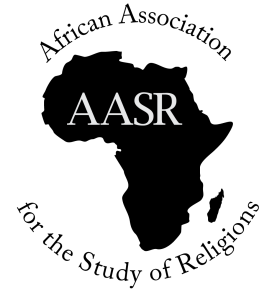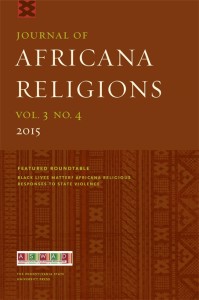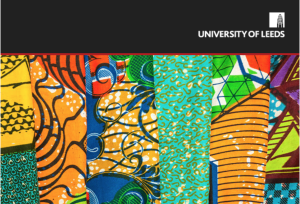2018
1-Year Post-Doc at U. Virginia
The Department of Religious Studies at the University of Virginia invites applications for a one-year Post-doctoral Research Associate and Lecturer position in the religions of Africa and the African Diaspora. Candidates may specialize in either African or Diasporic religions, but must be able to offer at least one undergraduate course on each. We are especially interested in scholars whose research is centered in West Africa or the Afro-Caribbean.
The successful candidate will teach three courses during the academic year. Candidates will also be expected to conduct their own research and participate in the extracurricular academic life of the department.
Applications are open to scholars with PhDs in the study of religion or in cognate areas such as Anthropology, African Studies, History, and Literature and the Arts. ABD considered, with the expectation that the candidate will have the doctorate in hand by August 1, 2019.
To apply, visit http://jobs.virginia.edu and search on Posting Number 0624452. Complete a Candidate Profile online and electronically attach a cover letter, CV, statement of research and teaching, and contact information for three references. Review of applications will begin on December 15, 2018, but will remain open until filled. Preliminary interviews will take place via video conference and are anticipated to begin in mid-January 2019.
Questions regarding the position should be directed to: Cynthia Hoehler-Fatton at chh3a@virginia.edu
Questions regarding the application process in Jobs@UVA should be directed to: Richard Haverstrom at rkh6j@Virginia.edu
The University of Virginia is fundamentally committed to increasing the diversity of its faculty and staff. UVA is an affirmative action and equal opportunity employer. We welcome nominations of and applications from women, members of minority groups, veterans and individuals with disabilities. We also welcome others who would bring additional dimensions of diversity to the university’s research and teaching mission. We believe diversity is excellence expressing itself through every person’s perspectives and lived experiences.
2018
Announcing a Partnership with the Journal of Africana Religions!
A letter from our President, Elias K. Bongmba, outlining an exciting new initiative with the Journal of Africana Religions, followed by our joint press release. Read on!
Dear Colleagues of the AASR Community,
The executive of AASR has received, discussed, and approved an invitation from Professor Sylvester Johnson and Professor Edward Curtis, editors of the Journal of African Religions, for the African Association for the Study of Religions to collaborate closely with the Journal of Africana Religions. This is a new chapter for us, but also similar to the ties we have with the Journal of Religion in Africa.The journal also edits a book series in Africana Religions and recent authors who have published in the series include Oludamini Ogunnaike and Adriaan van Klinken. Please do take some time and look at the description of the series here.
We are delighted to tell you that as part of this collaboration, the editors of the journal have informed us that AASR members based in Africa will receive free subscriptions to the journal. Our members who live outside Africa will receive discounted subscription to the journal.
We invite all our members to be part of this expanded intellectual collaboration because it further fulfills one of our goals of strengthening our growing intellectual community in Africa and the African diaspora.
Sincerely,
Elias K. Bongmba
President, AASR
# # # # # FOR IMMEDIATE RELEASE # # # # #
CONTACT:
Sara Fretheim, sara@sarafretheim.com
Edward Curtis, ecurtis4@iupui.edu
RELEASE DATE: November 29, 2018
AFRICAN ASSOCIATION FOR THE STUDY OF RELIGIONS AND JOURNAL OF AFRICANA RELIGIONS ANNOUNCE GROUNDBREAKING PARTNERSHIP
Today the African Association for the Study of the Religions (AASR) and the Journal of Africana Religions announced a multifaceted partnership that will advance the global study of Africana religions.
“This is a new chapter for us,” said AASR President Elias Bongmba, who is the Harry and Hazel Chavanne Chair in Christian Theology at Rice University. “It significantly strengthens our growing intellectual community in Africa and the African diaspora.”
The new partnership’s most ambitious component is the creation of pan-Atlantic research teams that will unite scholars from Africa, the Americas, and Europe for collaborative research and writing. “In some cases,” according to Journal of Africana Religions co-founder and Virginia Tech Humanities Center Director Sylvester Johnson, “these will be mentoring relationships between senior and junior scholars. In other cases, the pairs will be composed of professors of equal rank. Whatever the case, the pairings must be mutually beneficial.”
“If these research pairings work the way we want them to,” added journal co-founder and IUPUI Millennium Chair of the Liberal Arts Edward Curtis, “some of them will lead to joint authorship of book manuscripts that we will want to consider for publication.” In addition to editing the journal, Johnson and Curtis are the editors of a Penn State University Press book series on Africana religions.
Under the new partnership agreement, AASR will become a Journal of Africana Religions sponsor, and AASR members working in Africa will receive complimentary e-subscriptions to the journal.
The Journal of Africana Religions will also play a role at the 9th AASR conference in Dakar, Senegal, in 2020.
Both groups plan on supporting one another’s social media and communications strategies, too.
Founded in 1992 in Harare, Zimbabwe, the AASR promotes the study of religions in Africa through international collaboration in research, publishing, and teaching. AASR is an affiliate organization of the International Association for the History of Religions. It provides a scholarly network for scholars across the African continent, Europe, and North America through its conferences in Africa, its bulletin, its own e-journal on African and African diasporic religions, and annual meetings at the American Academy of Religion and African Studies Association. It also supports the Journal of Religion in Africa.
The Journal of Africana Religions is a peer-reviewed journal that features research on the diverse religious heritage of African and African-descended people. Now in its seventh volume, the journal, which is published by Penn State University Press, is available from Project Muse and JSTOR as well as in print. It is also sponsored by the Association for the Study of the Worldwide African Diaspora (ASWAD).
Both organizations emphasized that their new cooperation will complement rather than compete with existing partnerships and initiatives. The purpose is to increase resources devoted to the growth of the field in order to reflect its critical importance to the future of human knowledge-making.
# # # # # # # # # # #
2018
Join Us! AASR Panels & Events @ AAR/SBL Denver 2018
Friends and Colleagues,
It’s almost that time again! As you make plans for the upcoming AAR conference November 17–20, please do plan on joining us for our sponsored/co-sponsored sessions, annual dinner, and business meeting. We look forward to seeing you there!
AASR Annual Dinner:
Sunday (18th), 6:30PM (restaurant closes by 10:00PM)
The Ethiopian Restaurant
2816 E. Colfax Ave, Denver, CO
Phone: 303-322-5939
NOTE: *CASH ONLY!*
AASR Business Meeting:
Monday (19th), 9:00AM–11:30AM, P19–100, Convention Center-Mile High 3B (Lower Level), following the session on Empire, Religion, Health, and Human Capital in Africa.
AASR Sponsored Sessions (AAR):
- P18-200
African Association for the Study of Religions
Theme: Power and Subversion African Religious Spaces
Elana Jefferson-Tatum, Tufts University, Presiding
Sunday (18th) – 1:00 PM–3:00 PM
Convention Center-Mile High 2C (Lower Level)
African Christianity and the Intersection Between Faith, Traditional And Biomedical Healing
Dying and Rising as the Moon Does”: The Keiskamma Art Project, the Persistence of the Xhosa People, and the Possibility of Impossibility
Individualism, Gender and Spirituality: The Nigerian Experience
Unregistered Participant
Unregistered Participant
African Christianity and the Intersection between Faith, Traditional, and Biomedical Healing
Susie Paulik-Babka, University of San Diego
“Dying and Rising as the Moon Does”: The Keiskamma Art Project, the Persistence of the Xhosa People, and the Possibility of Impossibility
Bolaji Bateye, Obafemi Awolowo University
Unregistered Participant
“The Church as Family, Things Are No Longer What They Used to Be”: Individualism, Genderization, and Scripturalization of Spirituality, the Nigerian Experience
- P19-100
African Association for the Study of Religions
Theme: Empire, Religion, Health, and Human Capital in Africa
Elias Kifon Bongmba, Rice University, Presiding
Monday (19th) – 9:00 AM–11:30 AM
Convention Center-Mile High 3B (Lower Level)
Empire, Religion, Health and Human Capital in Africa
Colonialism, Traditional African Religion, and the Catholic Church in Kenya
Humanizing Rituals in the American Presbyterian Congo Mission
Muhammad, Capitalist Ethics, and Muslim Reform in Burkina Faso
Timothy Carey, Boston College
“Who do the crowds say that I am?”: Colonialism, Traditional African Religion, and the Catholic Church in Kenya
Jesse Miller, Florida State University
Muhammad, Capitalist Ethics, and Muslim Reform in Burkina Faso
Unregistered Participant
Humanizing Rituals in the American Presbyterian Congo Mission
Business Meeting:
Elias Kifon Bongmba, Rice University
Corey Williams, Leiden University
AASR Co-Sponsored Sessions (SBL):
A19-411
Ecclesiological Investigations Unit and African Association for the Study of Religion
Theme: Ecclesial Experiences in African Contexts
Aaron Hollander, Loyola University Chicago, Presiding
Monday (19th) – 5:30 PM–7:00 PM
Hyatt Regency-Capitol 5 (Fourth Level)
The three papers of this session present ecclesial experiences in three distinct African contexts that have made or ought to make substantial contributions to the wider life of the Christian churches and to their understandings of the church. The first paper starts from twentieth-century liturgical reforms in the Ethiopian Tewahedo Orthodox Church, and analyzes the way in which local, national, and diasporic identity changed in relation to the transition between orality and textuality in these reforms. The second paper begins from the historic experience of the Christian descendants of slaves from the Kongo kingdom, and from that history makes a constructive theological argument for the importance of the “slave template” in undermining ecclesiologies of power and strength. The third paper, drawing on the work of Ghanaian Presbyterian Kwame Bediako and of Cameroonian Catholic Jean-Marc Éla, highlights the incorporation of ancestors in African theology and ecclesiology as a gift to be received by the wider communion of churches.
Andrew Salzmann, Benedictine College
Agency and Identity in Ethiopian Liturgical Reform
Elochukwu Eugene Uzukwu, Duquesne University
Liberation and the Slave-Template: Catholic Church, Religions and Cultures, and the Transformation of Society
Ross Kane, Virginia Theological Seminary
Enlarging the Cloud of Witnesses: Ancestors and the Church in Kwame Bediako and Jean-Marc Éla
- S19–200
Joint Session With: African Biblical Hermeneutics; African Association for the Study of Religions
Monday (19th) 1:00 PM–3:30 PM
Room: Range Ballroom – Crowne Plaza (CP)
Theme: Scripturalization and Orality in/as African Spirituality
Althea Spencer Miller, Drew University, Presiding
A. Paige Rawson, Drew University
The Archipelogics of Africana Biblical Hermeneutics: Africana, Orality, and Transtextual Biblical Interpretation in the Twenty-First Century (35 min)
Madipoane Masenya (Ngwan’a Mphahlele), University of South Africa
Navigating the Collusions and Contradictions of African Orality and the Digital Age in Understandings of the Bible (35 min)
Knut Holter, VID Specialized University, Norway
Isak—the Son of the Rainmaker—and the Bible: An Example of Resistance Hermeneutics in Zululand in the 1860s and 70s (35 min)
Sara Fretheim, University of Edinburgh
“Kasakyerew ho nimdefo, mo!” (Those gifted in the knowledge of writing of language, congratulations!): Kwame Bediako, Mother-Tongue Theology, and Orality—African Epistemologies and Spirituality (35 min)
Discussion (10 min)
2018
CfP: Circle of Concerned African Women Theologians July 2019
Call for Papers
Circle of Concerned African Women Theologian 5th Pan-African Conference
The Department of Theology and Religious Studies
University of Botswana
Gaborone, Botswana
July 2-5, 2019
Conference Theme
Mother Earth and Mother Africa in Theological/Religious/Cultural/Philosophical Imagination
As the Circle of Concerned African Women Theologians celebrates thirty years of existence and impressive productivity, the fifth continent wide conference shall be held in Gaborone, Botswana in July 2-5, 2019. Given that the land is often constructed as female gendered and the oppression of women is interlinked with the oppression of the Earth; and given that it is widely acknowledged that we live in the era of global warming – which is humanly induced and of which many have also linked with anthropocentric religious/cultural/theological perspectives — the conference theme calls for research papers that interrogate the link between gender, land, race, class, ethnicity, colonialism, globalization and environmental sustainability. It solicits for papers that reimagine human relationships with the Earth from paradigms of liberation.
Research papers that are using various methods and theories; drawn from diverse religious, cultural, philosophical and theological traditions, are solicited to investigate the intersection of gender, religion and the environment, while analyzing the relationships between women and the land of the past, present and future. Papers that re-read religious/philosophical/cultural texts in the light of Sustainable Development Goals are invited. Researchers may seek to describe, expose, interpret, reinterpret, theorize, reimagine the link between social categories, religion and Earth oppression as well as propose liberating perspectives from traditions and sources of their choice such as African oral cultures, Quran, Bible, African creative works, World Religions, amongst others. Several volumes will be published, following the conference, as it is expected that contributors will receive and integrate constructive feedback from conference participants and through the process of peer reviewing.
Interested researchers are invited to submit abstracts from any one of the following sub-themes:
African Religion/Cultural/Philosophy/Oral Literature and the Earth
• Environmental Imagination in African rituals and taboos
• Oral Literature: Proverbs, folktales, sayings, myths and songs
• African Cosmology and Environmental Sustainability
• African Imagination of Community and Environmental Sustainability
• Botho/Ubuntu, Gender and Environmental Sustainably
• Gender, Religion and Access to Land Ownership
• African Colonial History and the Environment
• Globalization, Global Warming and Gender in Africa
• Sustainable Development Goals, Mother Earth and African Oratures
Biblical Literature and the Earth
• Creation Stories, Gender and Ecological Justice
• Environmental Imagination in the Pentateuch
• Earth constructions in prophetic literature
• Ecological Imagination in Wisdom Literature
• Markan/Lukan/Matthean/Johannine Green Christologies
• Ecological Imagination in Pauline and Deutro -Pauline Literature
• Ecological Imagination in Apocalyptic Literature (Revelation)
• Jesus//Paul, Gender and the Environmental Imagination
• Earth-friendly African Biblical Hermeneutics
• Sustainable Development Goals, Mother Earth and Biblical Texts
Earth and Theological Imaginations
• Salvation Reimagined
• Mission Reimagined
• Incarnation and ecological Justice
• Earth-centered Worship
• Creation-centered Eschatology
• Earth-centered Trinitarian models
• Earth Construction in Christian Hymns
• Creation-centered Theology
• Sustainable Development Goals, Mother Earth & Theological Imagination
World Religions and Environmental Imagination
• Islam, Gender and Construction of the Earth
• Christianity, Gender and Ecology
• Hinduism, Gender and Ecology
• Confucianism, Gender and Ecology
• Colonialism, Globalization, Gender and Earth Care
• Sustainable Development Goals, Mother Earth & World Religions
African Novels and Creative Non-Fiction Writers
• Environmental Imagination among African Women Writers
• Environment Imagination African Male Writers
• Colonialism, Land and Gender in African Creative Writers
• Globalization, Land and Gender in African Creative Writers
• Global Warming, Land and Gender in Creative Non-Fiction
• Sustainable Development Goals, Mother Earth & Creative Writers
Schedule of Production
1. Call for Papers: November 10, 2018
2. Deadline for Submission of Abstracts: March 1, 2019
3. Deadline for Financial Registration June 1, 2019
4. Arrival and Conference Registration Date: July 1, 2019
5. Conference Dates: July 2-4, 2019, University of Botswana
6. Submission of Reviewed Papers: September 1, 2019
Conference Fees and Registration
• Normal Registration: P800.00 ($80usd)
• UB staff member Registration: P600.00 ($60usd)
• Student Registration: P400.00 ($40 usd)
Conference Contact Persons:
Please send your registration fees and 400-word abstract and short bio to:
• Dr Sidney Berman: sidneybrmn@yahoo.co.uk
• Malebogo Kgalemang: mkgaleman@gmail.com
2018
CfP LUCAS “Creative Africas, Contemporary Africas”
Dear colleagues and friends,
Please find below the call for papers for an African Studies conference taking place at Leeds in April 2019, on the theme “Creative Africas, Contemporary Africas: Methodological and Conceptual Advances in African Studies”. Please do consider submitting paper or panel proposals, and distribute the CfP in your networks!
LUCAS Conference 2019
4 – 5 April 2019
Call for Papers
Building on its long history of a multidisciplinary and critical study of African societies, cultures and politics, the Leeds University Centre for African Studies invites proposals for panels and papers with cutting-edge empirical and theoretical research into Africa’s multiple realities, dynamics and meanings. We specifically welcome contributions that probe new methods and concepts from across the social sciences and humanities in order to advance our understanding of Africa as a place and an idea, and the state of African Studies as a field.
How to Apply
Either by submitting an individual proposal (200 words max.), or a proposal for a full panel of four papers (with a panel abstract of 200 words max., and abstracts of the individual papers of 200 words max.).
The deadline for proposals is Friday 30 November 2018




